|
I may be biased, (okay, I am totally biased,) but it is my humble opinion that your wedding ceremony should be 100% reflective of you and your partner's personality, values, worldview, and everything that makes your relationship special and unique. There are many ways to personalize your ceremony to reflect who you are and what you believe. When I collaborate with couples to design their wedding ceremony, I divide these ways into 4 categories. Declaration of Intent - the “I do” - Many couples say “I do,” to a standardized set of declarations - “Do you, _____ take ____ as your lawfully wedded partner….” The point of this part of the ceremony is to declare that you are a willing participant in this ceremony. Instead of just agreeing to the basics, couples can create personalized intention statements that take this agreement to marry a step further, and agree to the intentions of the marriage as well. Blessings, Readings, & Prayers Throughout the ceremony, couples will often include a reading or a prayer. I encourage couples to really be selective about this reading and make sure it’s something that either means something to them or really evokes the sentiment they are seeking to experience. Bonus points go to those who invite a beloved family member to come up and read. Make it extra special. A fun twist on this is playing a song or singing, if that is your thing! Unity Ceremony The Unity Ceremony is where we create a visual representation of the emotional joining that is taking place. There are many options available and often couples simply don’t know what is out there. Things have come a long way from the Unity Candle! Branch out! One unique version of this is a Tree Planting ceremony, where we take soil from the two childhood homes of the partners and use it to plant a tree together. You can do Coffee Bean blending, Wine blending, Bourbon blending, and my favorite, Signature Cocktail blending are all other versions of this ceremony. Make it PERSONAL!! Vows
This is the one point in the ceremony where couples take the mic and have an opportunity to speak directly to their beloved in a way that doesn’t happen during the rest of the repeat-after-me ceremony. I HIGHLY encourage my couples to write their own vows and I provide a framework to keep them focused on the fact that they are not just telling a story - but declaring their promises for the many years to come. Even if your faith system does not allow for you to read your own personal wedding vows during your wedding ceremony, I highly encourage you to spend the time to write your own personal wedding vows with your specific promises to your best friend. Not sure where to start with your wedding vows? Download my How to Vow Roadmap and get going!
1 Comment
 Most couples do not come to our consults with many questions in mind, and as a result, may settle for something they don’t want because they did not know what they did not know. Don't be most couples. Your officiant is one of the most VITAL roles in your wedding day because they are the one standing RIGHT THERE with you as you cross the threshold into married life. Do not settle for someone you don't know, like, or trust. In order to find out if you know, like and trust them, you have to ask some questions and feel them out as they respond. Here are just a few options for questions to bring to the conversation:
Depending on the officiant, there may be a structure to your consultation or it may be free flow, either way, pay attention as you move through the conversation and don’t be afraid to ask what comes to mind. This is an important role in your day and it’s important for you to feel comfortable with this person. Now, if you are reading this and you have yet to hire your wedding officiant - please do yourself a favor and download the How to Find & Hire Your Wedding Officiant cheatsheet right now, so you can be on your way to hiring the perfect officiant to hold space for you and your beloved as you cross the threshold into married life together. 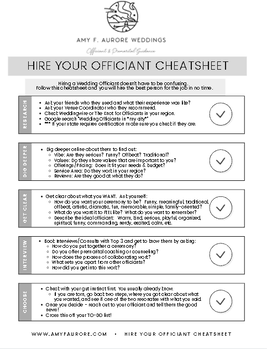 Finding the perfect vendors for your wedding day is no small feat, and it can be tempting to just hire the first person you meet with and be done with it. I encourage couples to be thoughtful about who they hire for their Wedding Officiant because this person is holding space for you and your beloved as you step into married life - you want to be sure it’s a great personality fit, not to mention that they are responsible for the legality of your marriage. Ultimately, using my Free Cheatsheet, How to Find & Hire Your Wedding Officiant will take you from not knowing where to even find an officiant, to interviewing and booking your favorite one. Let me tease you with a few major essentials to keep in mind: 1. Vibe - make sure you are looking at their website and reviews to see that this person will feel good to be around and work with. 2. Values - make sure this person accepts and respects your core values, so that they can accurately reflect you and your relationship in your wedding ceremony. 3. Validation - make sure you are seeking validation that this person is a professional and legit. Now, if you are reading this and you have yet to hire your wedding officiant - please do yourself a favor and download the How to Find & Hire Your Wedding Officiant cheatsheet right now, so you can be on your way to hiring the perfect officiant to hold space for you and your beloved as you cross the threshold into married life together. If you have any questions about hiring your wedding officiant, don't hesitate to email me at weddings@amyfaurore.com and ask. I check all of my own emails and I love hearing from you. Talk soon! 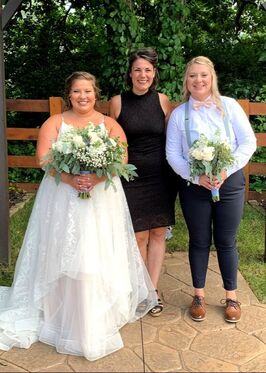 “Oh, I thought you were a wedding PLANNER!” As a Wedding Officiant of ten years, I hear this line - A LOT. Many engaged couples have no idea what a wedding officiant does, how they do it, and what to expect from them. Once upon a time, the officiant role was only performed by clergy or sometimes a judge. Many modern couples, however, are planning their weddings at venues instead of churches, and as a result, must hire for a professional service that is offered by many different types of officiants. This shift from clergy to professional service allows for customized ceremony offerings in a way that wasn’t possible before. What is a wedding officiant and what do they do? A wedding officiant is someone who has been granted authority to authorize a marriage by signing the Marriage License. Some officiants are ordained by religious institutions and others consider themselves secular or civil officiants. Every state has different rules and regulations about who is allowed to perform these duties. Make sure your officiant is legal or your marriage won’t be! The primary responsibilities of the wedding officiant are basic but very important.
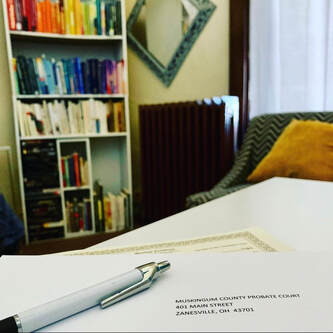 What your wedding officiant does beyond this will vary depending on their service model. Some will offer very basic license signing services and others offer comprehensive packages that may include any of the following, plus additional unique services that reflect their background or brand.
As you reflect on the optional services, consider what it is you would like to have your officiant do for you and what you are happy with forgoing or doing yourself. |
Amy F. AuroreCoffee Drinker. Virgo. Cat Lady. Lover of Love. ArchivesCategories |
|

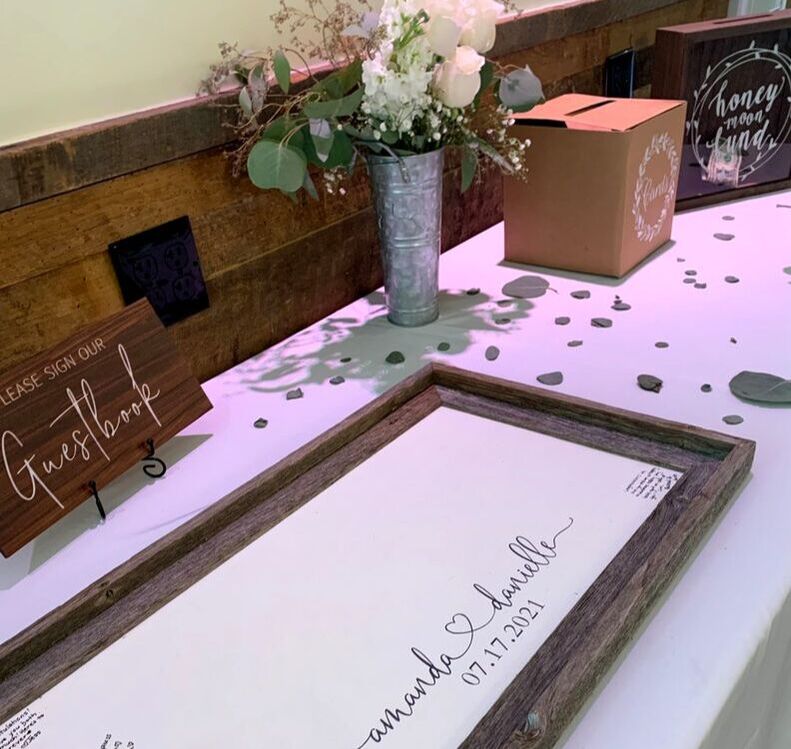
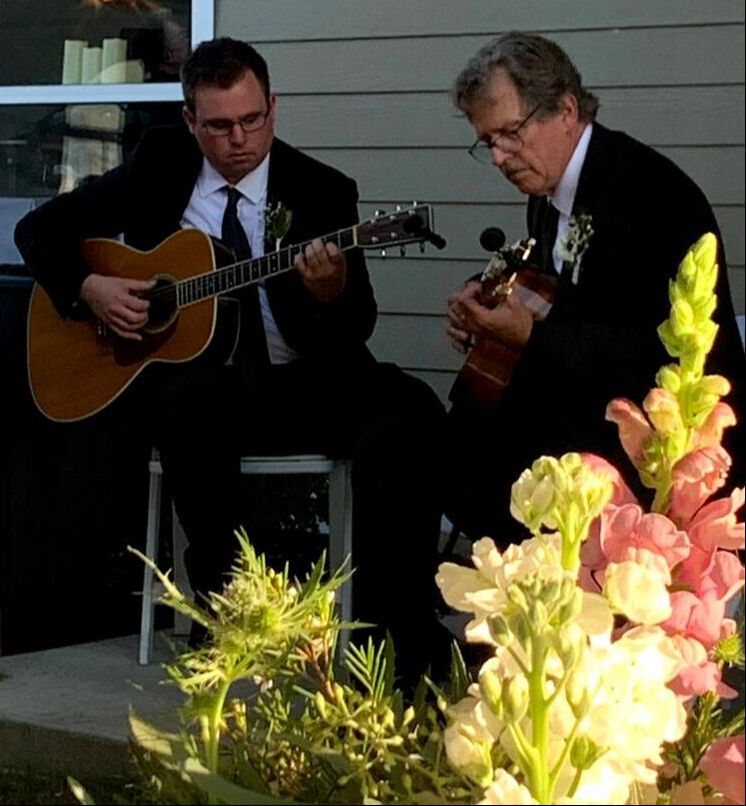
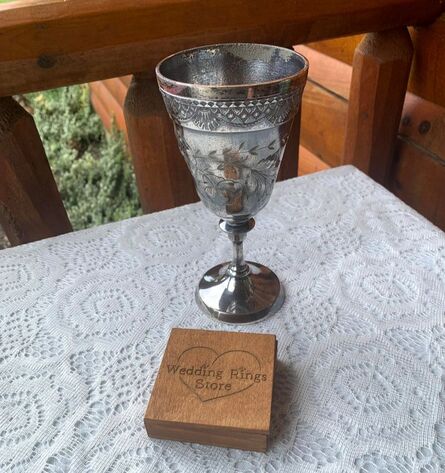
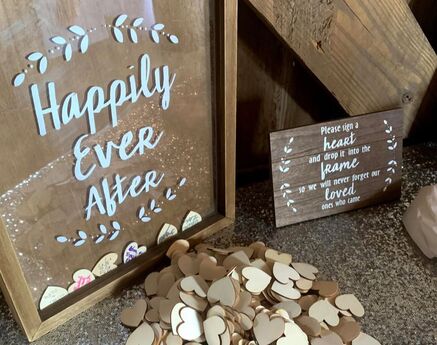
 RSS Feed
RSS Feed
